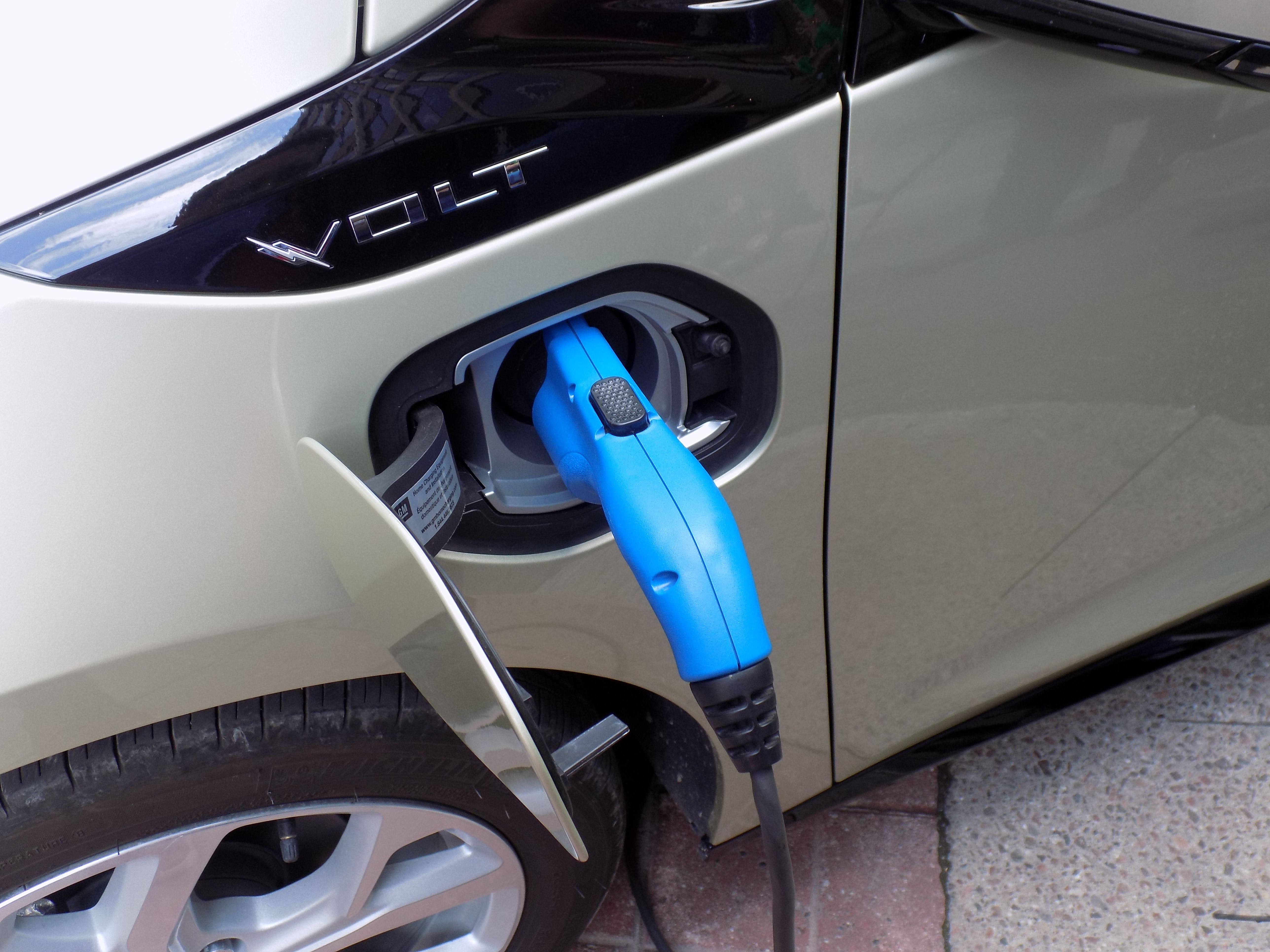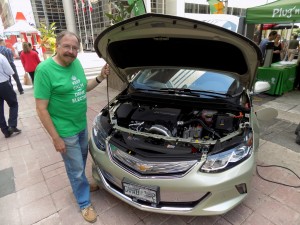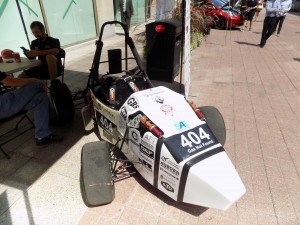Electric car awareness in Ottawa

Fueling up with power, not petroleum. Photo by James Morgan
Climate change and environmental conservation have changed the automobile in recent years. The third EV (Electric Vehicle) Day was held recently on the Sparks Street Mall in downtown Ottawa. It was an opportunity to talk with electric vehicle advocates, owners, and industry people. EV Day is presented by the Ottawa Centre Ecodistrict initiative, a community organization that aims to increase social and economic participation in the environmental movement in the downtown area.

“It changed my life,” said Gord McFarlane about his switch to an electric car. Photo by James Morgan
Gord McFarlane from Brockville just bought a 2017 Chevrolet Volt to replace his first electric car, a 2014 model. A chemist by profession, McFarlane has become a big booster of electric vehicles. He works as an independent consultant—not a salesman, for a Chevrolet dealership in Brockville. He also is involved with Plug ‘N Park, a non-profit organization that promotes electric vehicles.
McFarlane said one of the biggest challenges in getting electric cars to be accepted by the mainstream is that they don’t fit the gasoline-fueled muscle car image very well. He said he tries to get sales staff to understand why certain customers would want an electric car so they can promote the advantages. His Chevy Volt is just as powerful as any other compact or mid-size car on the market today. It has a 1.5 cubic liter engine and a top speed of 100 miles/160km per hour.
McFarlane charges his car overnight at home when the time of use power rates in Ontario are lower. He said it costs him about a dollar a day to charge up his car, but if he’s running short on power, the car has a built-in generator that uses a small amount of gasoline to make more electricity. Diesel-electric train locomotives operate the same way. Another fun fact about the Chevy Volt is that it doesn’t have a transmission, there are no gears–the motor is direct drive. The base model of the Volt is priced at about US$34,000.
Electric vehicles made by Ford, Nissan, KIA, Mitsubishi, and of course Tesla were also on display. The Tesla was drawing especially curious looks because of its small, concealed motor. There is only storage space underneath the hood. Previously a high-end car with a starting price of US$75,000, Tesla is going for the mass market in 2017 with a US$35,000 model.
Some engineering students from Ottawa’s Carleton University were at EV Day with the race car they built in 2014. The team has never won a race but student Frank Sorensen said they placed 6th out of a slate of 15 teams at a recent competition in Lincoln, Nebraska. The car has an 80 horsepower motor and can go from zero to 60 miles per hour (about 100 km/h), in just five seconds.
Siemens, one of the world’s biggest makers of electrical equipment was one of the companies showcasing its home charging stations. Ontario is aggressively adding more in public places and Quebec, where electricity is cheap and abundant, leads Canada when it comes to charging stations.
Electric cars have come a long way in the past few years. For expanded electric car ownership in this region, two advancements are needed: capacity for longer distances between charges, and charging stations at virtually every gas station.







